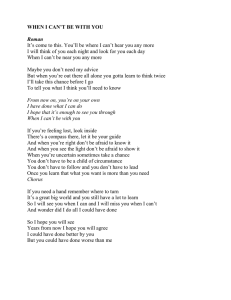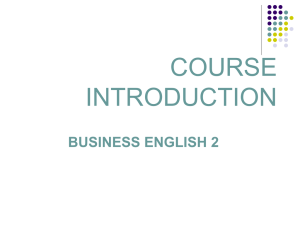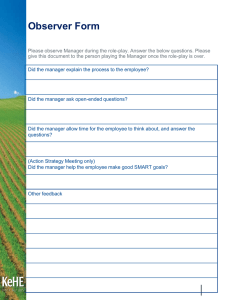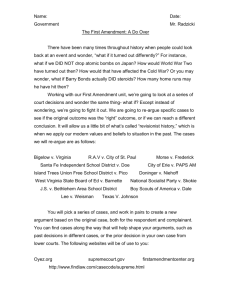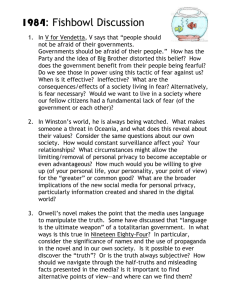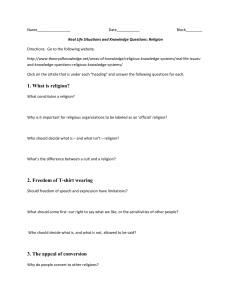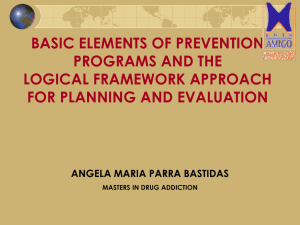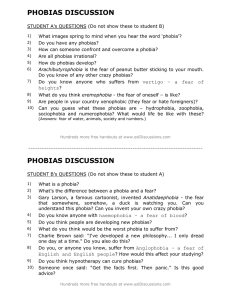meetings
advertisement
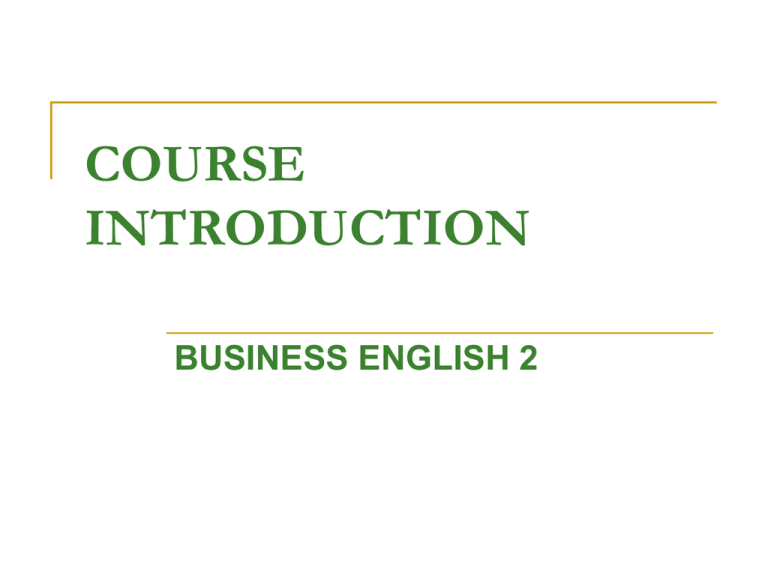
COURSE INTRODUCTION BUSINESS ENGLISH 2 Contact information Lecturer: Office hours: Room: E-mail: BOGLARKA KISS-KULENOVIĆ Friday: 11:00 – 12:00 16 bogik@yahoo.com Timetable Lecture: Monday, 8:15 – 9:45 Seminars: Wednesday, 18:00-19:30 (Pun – San) Friday: 9:30 – 11:00 (Sao- Šip) REQUIRED LITERATURE MacKenzie, I. (2010) English for Business Studies, CUP Business English Resource Bank 2 (2011-12) Print it out by next time! COURSE REQUIREMENTS regular attendance You will not get a signature if you miss more than 3 seminars doctor's notes or other proof of absence have to be handed in maximum 7 days after the class missed. active in-class participation (home assignments, participation in discussions); Organise and role-play a business meeting; passing progress tests or final exam. TWO WAYS TO GET A GRADE 1) PROGRESS TESTING - BEFORE REGULAR EXAM DATES regular attendance homework assignments for signature Business meeting midterm test endterm test active in-class participation oral exam 2) REGULAR EXAM DATES regular attendance homework assignments for signature Business meeting final comprehensive written test (regular exam period) final comprehensive oral exam (regular exam period) MEETINGS The meetings will be held in my office during office hours until the end of the semester You will work with your group from the previous semester. Topics, agendas and role-play instructions will be given out next time. prepare the topic of the meeting, agenda, minutes and roles Hand in the agenda and minutes on the day of the meeting. Use class input (RB 2) on the structure and language of meetings Rehearse your role alone and with your team Meetings 1 Key words: nouns Try to explain what these words mean: Agenda Minutes Minute-taker Memo Venue Key words: verbs Find connections Circulate the minutes Schedule a meeting Take minutes Put off a meeting Draw up the minutes Call a meeting Send out the minutes Postpone a meeting Key words: verbs Find connections Circulate the minutes Schedule a meeting First you take minutes Put off a meeting Send out the minutes Call a meeting Then you draw up the minutes Postpone a meeting Downtoning: firm, but polite language Say please and thank you Avoid being direct: Your prices are not acceptable We think your prices are rather high. Ask, rather than order: You must send it straight away. Please could you send it as soon as possible? Use indirect questions: Can you reduce your prices? I was wondering if you could reduce your prices. Avoid blaming or accusing: You’ve made a mistake with my order. I’m afraid there is a problem with the order. Understate the point: There is a problem. It seems we have a small problem. What should you use instead of...? Must, should Mustn’t, shouldn’t It is impossible, We can’t... I want you to ... Negative adjective (e.g., bad) Please could you ...? I wonder if you could ...? Would you mind not...? I’m afraid we are unable to... I advise you to, I suggest V-ing, I suggest that Why don’t we/you... Not + positive adjective (e.g., not good OR not so good OR not such a good) Downtone to following sentence: You must reduce the price. Make sentences by including: I am afraid, may/ might, maybe, I wonder if you could Why don’t we ... A little/ a bit just Let’s see ... DOWNTONING “You must reduce the price” “I’m afraid the price is too high for us.” “The price may/ might be too high for us.” “Maybe you could reduce the price.” “I wonder if you could reduce the price.” “Why don’t we consider reducing the price?” “The price is a little too high for us.” “The price is a bit too high for us.” “The price is just too high for us.” “Let’s see what happens if the price is reduced.” Making suggestions and proposals Downtone the following sentence: “Read the report first.” Finish these lines: I advise... I suggest V+ing/ that... Why don’t we ... Shall we ... Making suggestions and proposals “Read the report first.” “I advise you to read the report first.” “I suggest reading the report first.” “I suggest (that) we should read the report first.” “I suggest (that) we read the report first.” “Why don’t we read the report first?” “Shall we read the report first?”
